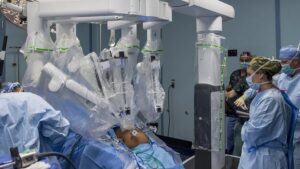
Nasal health has quite a considerable impact on our sense of wellbeing, although we often take it for granted and only realise its significance when issues arise. However, the need for proper nasal care in Singapore is one felt by many, as its dense urban landscape and humid atmosphere can frequently result in issues such as seasonal allergies, sinus congestion, or chronic nasal irritation.
As with most medical conditions, prevention is better than cure, especially considering that it’s not just a matter of comfort – leaving nasal conditions unchecked can open the door to serious respiratory challenges that are both costly and exhausting to deal with. Avoiding such conditions is not particularly difficult either, but it does require some understanding of the underlying causes so that the appropriate nasal care solutions can be used.
However, with today’s busy schedules, not everyone has the time to read up on nasal care and make the relevant lifestyle adjustments. So let’s take a quick dive into the common nasal health concerns and treatment options, along with some of the preventive care measures you might take to support better respiratory well-being in Singapore’s climate. Do be aware that while these pointers are intended to help you maintain breathing comfort, they cannot be substituted for the advice of a trained medical professional. If you experience even mildly serious breathing issues, schedule a doctor’s appointment at the earliest possible opportunity to avoid complications.
Understanding Common Nasal Health Issues
Nasal discomfort can stem from various causes, including environmental triggers, infections, and structural conditions. Some of the most frequently encountered issues include:
1. Allergic Rhinitis
Allergic rhinitis occurs when the immune system reacts to airborne allergens such as dust mites, pollen, mould spores, or pet dander. The most common symptoms include frequent sneezing, nasal congestion, and an itchy or runny nose, often accompanied by postnasal drip that causes throat irritation. Given Singapore’s warm and humid climate, dust mites and mould thrive indoors, making allergic rhinitis a persistent concern for many individuals.
Managing allergic rhinitis involves minimising exposure to allergens, using saline nasal sprays to flush out irritants, and taking antihistamines when necessary. Some individuals may benefit from corticosteroid nasal sprays for long-term control, while those with severe allergies may explore immunotherapy options to build resistance to specific triggers over time.
2. Sinusitis (Sinus Infection)
Sinusitis occurs when the sinus cavities become inflamed, leading to nasal congestion, facial pressure, and thick nasal discharge, often with a yellow or green tinge. Viral infections, bacterial growth, or allergies can trigger sinusitis, causing symptoms that range from mild discomfort to severe sinus pain and headaches. Acute sinus infections typically resolve within 10 to 14 days, whereas chronic sinusitis can last for weeks and may require medical intervention.
Treatment for sinusitis depends on the underlying cause. Home remedies such as steam inhalation, saline rinses, and hydration can help loosen mucus and relieve congestion. In cases of bacterial infections, antibiotics may be prescribed, while individuals with chronic sinusitis may need further evaluation to identify structural issues or persistent inflammation requiring long-term management.
3. Nasal Dryness and Irritation
Dry nasal passages can be caused by prolonged exposure to air-conditioning, low humidity, or environmental pollutants. This can lead to mild nosebleeds, a burning or itching sensation in the nostrils, and increased sensitivity to airborne irritants. Many people in Singapore experience nasal dryness due to constant exposure to indoor cooling systems, which can strip moisture from the air.
To alleviate dryness, using a saline nasal spray or applying a gentle moisturising ointment inside the nostrils can help maintain hydration. Increasing indoor humidity with a humidifier and staying well-hydrated throughout the day also support better nasal health, preventing excessive dryness and irritation.
4. Nasal Congestion from Colds or Flu
Nasal congestion is a common symptom of viral infections such as the common cold or flu, resulting from inflamed nasal tissues and increased mucus production. This congestion can cause difficulty in breathing, headaches, and general discomfort. While congestion typically resolves on its own, symptoms can be particularly disruptive during recovery.
Managing congestion involves staying hydrated, using steam inhalation to clear nasal passages, and applying warm compresses to ease sinus pressure. Over-the-counter decongestants can provide temporary relief but should be used with caution to prevent rebound congestion. Rest and proper hydration remain the most effective ways to support the body’s natural healing process.
Typical Nasal Care Solutions in Singapore
Addressing nasal discomfort involves a combination of preventive care, over-the-counter treatments, and medical interventions when necessary.
1. Saline Nasal Sprays
Saline nasal sprays and irrigation solutions are widely used for maintaining nasal hygiene. They help keep the nasal passages moist, remove accumulated mucus, and flush out allergens or pollutants that may cause irritation. In Singapore’s urban environment, where air pollution and dust exposure are common, regular saline rinses can help prevent nasal congestion and allergic reactions.
Nasal irrigation using a neti pot or saline rinse bottle can be particularly beneficial for individuals with allergies or sinus congestion. By washing away irritants and excess mucus, these rinses promote better breathing and reduce the risk of infection. Saline sprays are also a gentle and effective option for those experiencing mild nasal dryness or irritation.
2. Nasal Sprays for Allergies
For individuals with persistent allergy symptoms, medicated nasal sprays offer targeted relief. Antihistamine nasal sprays help reduce sneezing, itching, and swelling, while corticosteroid sprays provide long-term inflammation control for conditions like allergic rhinitis. These sprays are especially useful for managing chronic nasal congestion caused by allergens such as dust and pollen.
While nasal sprays are effective, prolonged use of certain types, such as decongestant sprays, can lead to dependence and rebound congestion. It is advisable to consult a healthcare professional to determine the most suitable treatment and ensure proper usage.
3. Steam Inhalation and Humidifiers
Steam inhalation is a natural method for relieving nasal congestion by loosening thick mucus and promoting clearer airflow. This method is particularly beneficial for individuals suffering from colds, flu, or sinus infections. By inhaling warm steam infused with essential oils such as eucalyptus or peppermint, nasal passages can feel more open and comfortable.
Humidifiers are also helpful in maintaining the right indoor moisture levels, preventing excessive dryness caused by air-conditioning. In Singapore’s humid climate, controlled humidity is important to prevent mould growth while still ensuring nasal passages do not dry out.
4. Natural Remedies for Nasal Congestion
Natural remedies such as essential oils, warm compresses, and increased hydration can help alleviate mild nasal congestion. Eucalyptus and peppermint oils, when used in steam inhalation or diffusers, may provide a soothing effect on the respiratory system. Warm compresses applied to the face can ease sinus pressure, while drinking plenty of fluids helps thin mucus and promote its clearance from the nasal passages.
Although natural remedies can provide comfort, they may not be sufficient for severe or chronic nasal conditions. Individuals with persistent congestion or allergy symptoms should seek medical advice for a comprehensive treatment plan.
5. Medical Treatments for Persistent Issues
For ongoing nasal discomfort that does not improve with home remedies, medical treatments may be necessary. Allergy testing can identify specific triggers, helping individuals take proactive measures to minimise exposure. In cases of chronic sinus infections, a doctor may prescribe antibiotics, while severe inflammation may require corticosteroid treatment.
In some cases, surgical options such as endoscopic sinus surgery are considered for individuals with chronic sinusitis or nasal polyps. This procedure aims to improve airflow and drainage within the nasal cavities, offering long-term relief for those with structural nasal issues.
Preventive Measures for Better Nasal Health
Preventing nasal issues starts with maintaining clean indoor air and minimising exposure to allergens. Using air purifiers, regularly cleaning air-conditioning filters, and ensuring proper ventilation can reduce dust and mould buildup. In households with pets or high dust levels, frequent cleaning can help lower allergen exposure.
Practising good nasal hygiene is also essential for long-term nasal health. Rinsing the nasal passages with saline solutions after exposure to pollutants, avoiding excessive nose-blowing, and staying well-hydrated all contribute to healthier respiratory function. For those with recurrent nasal problems, seeking medical advice can help develop a personalised prevention and treatment plan.
Astromed: Helping You Breathe Easier with Nasal Care in Singapore
Maintaining nasal care in Singapore requires an understanding of common nasal conditions, selecting appropriate treatments, and adopting preventive strategies. For individuals experiencing persistent symptoms, consulting a healthcare professional is a must, as this will ensure the underlying causes are dealt with appropriately.
If you feel the need to seek professional help to deal with respiratory issues, consider turning to Astromed, a medical firm specialising in allergy management and nasal irrigation solutions. Through partnerships with internationally recognised brands, Astromed provides a series of well-tested answers to common nasal conditions, reducing the burden on healthcare providers as well as alleviating your discomfort. Take a deep breath of relief and reach out today – you may be able to finally say goodbye to those constant nasal woes.






